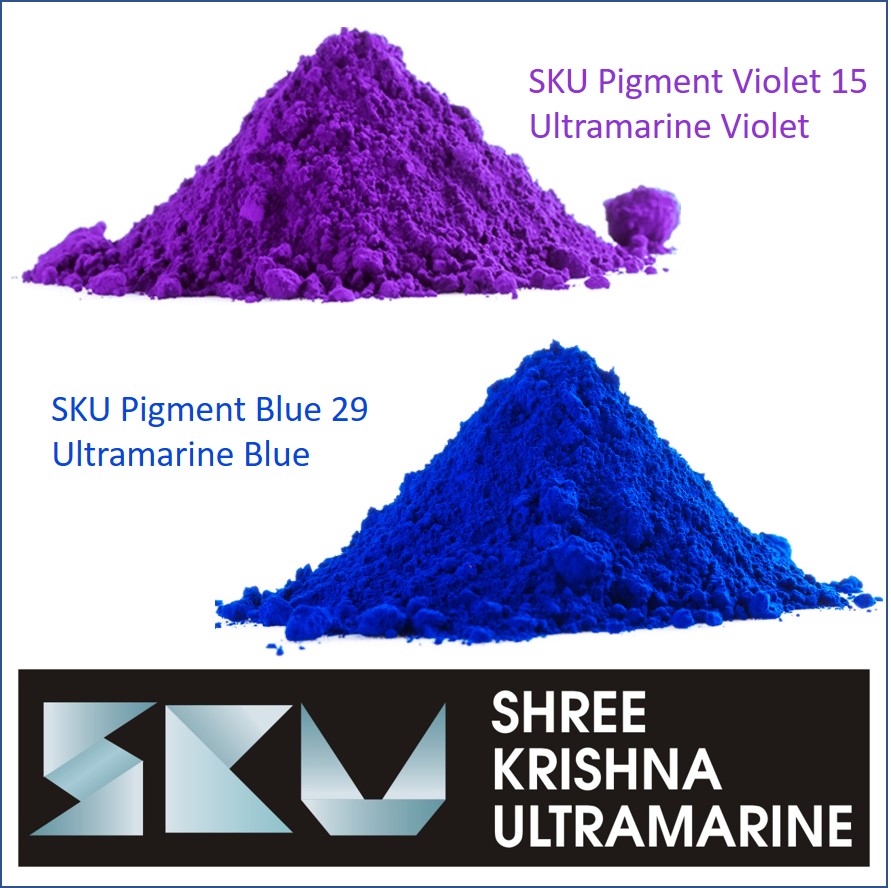Why Ultramarine Pigments Remain the World’s Most Trusted Blue

For centuries, color has shaped art, design, and industry. Among the most celebrated hues, Ultramarine remains unmatched for its depth and richness. Today, companies like SKU Pigments specialize in manufacturing high-quality Ultramarine pigments, including Ultramarine Blue, Ultramarine Violet, Pigment Blue 29, and Pigment Violet. From paints and plastics, Ultramarine has become the standard of modern blue pigments.
Tracing Ultramarine from Lapis Lazuli to Industry
The name Ultramarine comes from the Latin “ultra mare,” meaning “beyond the sea,” a reference to lapis lazuli originally imported from Afghanistan. For centuries, it was the most expensive pigment, used by Renaissance masters to illuminate manuscripts. It symbolized wealth and divinity.
Modern chemistry made it possible to produce artificially Ultramarine pigments, bringing the once-exclusive shade into everyday use. This breakthrough turned a exclusive pigment into a cost-effective solution for countless sectors.
Ultramarine Blue Pigments
Ultramarine Blue pigments—the synthetic form of Pigment Blue 29—are globally trusted. Known for their stability, they are safe, eco-friendly, and non-toxic. They are used in:
• Decorative finishes for long-lasting shades.
• Plastics and rubber, thanks to chemical safety.
• Inks and printing, where clarity is vital.
• Cosmetics, given their skin-safe quality.
This balance of performance and safety keeps Ultramarine Blue among the global color leaders.
Exploring the Subtlety of Ultramarine Violet
Ultramarine Violet offers delicate hues that appeal in cosmetics. Pigment Violet derived from Ultramarine is Pigment Violet highly dispersible, making it ideal for eco-friendly materials.
Its sophisticated tone enhances fine art, while ensuring stability without chemical breakdown.
How Pigment Blue 29 Powers Industries
Pigment Blue—particularly Ultramarine Blue pigments—remains a core pigment. It offers eco-friendly performance for:
• Automotive paints with brilliant sheen.
• Branding, ensuring long-term appeal.
• Construction materials, adding strength and aesthetics.
This multi-industry demand ensures Pigment Blue’s future relevance.
Advantages of Ultramarine Pigments
• Non-Toxic & Safe: Suitable for sensitive products.
• Heat & Light Resistant: Reliable even in high-heat industries.
• Eco-Friendly: Manufactured with sustainability.
• Cost-Effective: Economical mass use.
• Versatile: From fashion to infrastructure.
Where Ultramarine Pigments Shine
1. Paints & Coatings: Protective coatings.
2. Plastics & Rubber: Resistant to heat.
3. Cosmetics: Eyeshadow and nail polish.
4. Construction: Tiles and cement.
5. Printing & Inks: Sharp colors for publishing.
SKU Pigments: Global Ultramarine Experts
SKU Pigments leads the market, offering innovation in Ultramarine pigments. Their product portfolio includes:
• Pigment Blue 29 for industrial-scale use.
• Ultramarine Violet and Pigment Violet for luxury tones.
• Custom shades for niche industries.
Their reputation is built on consistent quality and eco-friendly production.
Conclusion
From a rare treasure to a global industrial pigment, Ultramarine has stood the test of time. Whether it’s the timeless vibrancy of Ultramarine Blue, the sophistication of Ultramarine Violet, or the stability of Pigment Blue 29, Ultramarine pigments remain essential.
With SKU Pigments as a trusted partner, industries achieve innovation with color. As demand for non-toxic pigments rises, Ultramarine will remain dominant in global markets.
FAQs
1. What is Ultramarine?
A vibrant pigment from lapis lazuli, now produced synthetically.
2. What is Pigment Blue 29?
The synthetic form of Ultramarine Blue.
3. Where is Ultramarine Violet used?
In eco-friendly and children’s products.
4. Are Ultramarine pigments safe?
Trusted globally for safety.
5. Why choose SKU Pigments?
Trusted supplier worldwide.